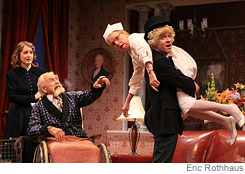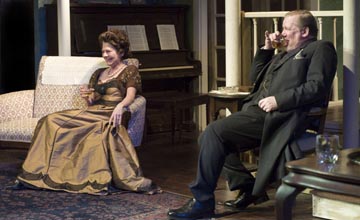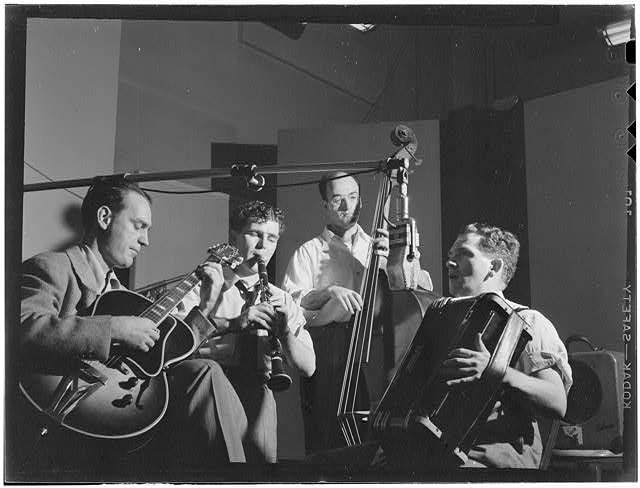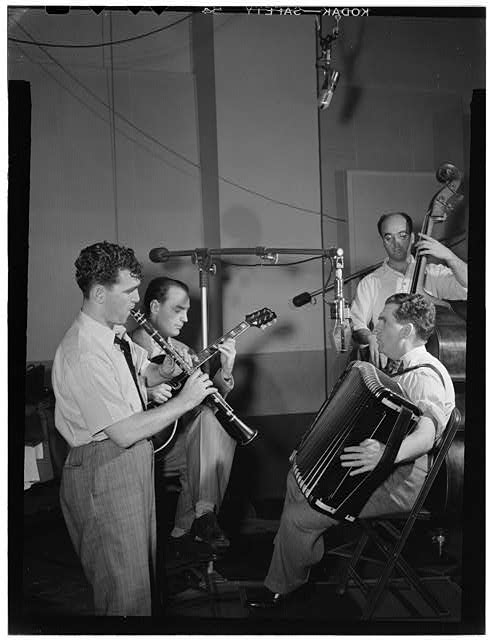The obituaries for James Whitmore had much to say about his many films, which makes sense, since they will be what most people remember best. From The Asphalt Jungle to The Shawshank Redemption, Whitmore was always a vivid and welcome presence on screen, though rarely if ever the star of the show, as he was on stage in the deservedly popular one-man plays in which he impersonated Will Rogers, Teddy Roosevelt, and Harry Truman.
 I wrote about Whitmore in a different capacity in The Wall Street Journal, for I had the great privilege of seeing him as Sheridan Whiteside and the Stage Manager in the Peterborough Players’ revivals of The Man Who Came to Dinner and Our Town. I turned my review of the first of those two shows into a heartfelt tribute to a remarkable actor:
I wrote about Whitmore in a different capacity in The Wall Street Journal, for I had the great privilege of seeing him as Sheridan Whiteside and the Stage Manager in the Peterborough Players’ revivals of The Man Who Came to Dinner and Our Town. I turned my review of the first of those two shows into a heartfelt tribute to a remarkable actor:
It’s a long, tough part, and I wondered as I drove up to New England whether an 85-year-old actor, however talented, could possibly summon up sufficient energy to make it work. I didn’t need to worry. Mr. Whitmore sailed through it like a youthful trouper, gleefully nailing each and every punch line to the back wall…
It isn’t always enjoyable to watch an actor enjoying himself on stage, so I’m pleased to report that the disciplined fun Mr. Whitmore and his colleagues are having is devoid of self-indulgence. You can tell that they know how good this show is, and their delight is impossible to resist. You can also tell how happy everybody is to be sharing the stage with an old pro. At the end of last Thursday’s performance, they went so far as to serenade their beaming star with a curtain-call chorus of Cole Porter’s “You’re the Top.” I’m with them.
Whitmore’s performance in Our Town was, if anything, more memorable still, partly because of the circumstances under which I saw it but mostly because he was so good. It didn’t make the obituaries, though, because he played the Stage Manager not on Broadway but in a converted barn in a small town in New Hampshire. Would that he had done it in New York City, or in front of a TV camera–but such, after all, is the evanescent nature of live theater, in which artists make miracles that vanish into the air each night, only to be recalled by those who happened to breathe the same air.
Stark Young, America’s greatest theater critic, collected some of his reviews in a volume that he called Immortal Shadows. It is my job–and my privilege–to try to confer a pinch of immortality on the performances that I see, be they on Broadway or in New Hampshire. I bless my employers for having seen fit to send me up north two summers in a row to see James Whitmore, and giving me space to write about what I saw.

 Intimacy is one of the most powerful weapons in the theatrical arsenal, as Chicago’s Shattered Globe Theatre is demonstrating with its eye-opening production of “The Little Foxes,” directed with uncommon finesse by Brandon Bruce.
Intimacy is one of the most powerful weapons in the theatrical arsenal, as Chicago’s Shattered Globe Theatre is demonstrating with its eye-opening production of “The Little Foxes,” directed with uncommon finesse by Brandon Bruce. •
•  Of all the countless newspaper and magazine pieces that I’ve written over the years, one of the most immediately consequential was “Too Cool to Cash In, Favorite of the Few,” which appeared in the Sunday New York Times in 1997. It was a posthumous
Of all the countless newspaper and magazine pieces that I’ve written over the years, one of the most immediately consequential was “Too Cool to Cash In, Favorite of the Few,” which appeared in the Sunday New York Times in 1997. It was a posthumous  I wasn’t the first person to try to spread the word about Joe Mooney. In 1989 Gunther Schuller wrote about the Mooney Quartet with great eloquence and penetration in
I wasn’t the first person to try to spread the word about Joe Mooney. In 1989 Gunther Schuller wrote about the Mooney Quartet with great eloquence and penetration in